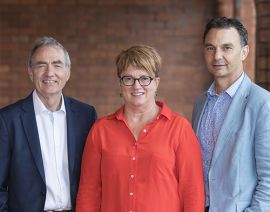About us
The Challenge of Change is based on a combination of unique approaches to resilience and teamwork training and is designed to bring about positive change in individuals, teams and culture. The training programmes are exceptional because they are drawn directly from internationally-recognised research findings.
A paradigm shift
The Challenge of Change (CoC) Resilience Training Programme turns conventional stress management on its head. It draws a clear distinction between pressure and stress rather than the misleading idea of good and bad stress, and contradicts the widely held view that some stress is good for you. Pressure is undoubtedly useful and motivating, but all that stress offers is a short, miserable life. The CoC Resilience programme defines stress as ruminating about emotional upset. Going over and over all the things in your life that never actually happened is self-evidently a miserable thing to do.
Harmful effects
Much of the evidence for the effects of rumination came from the research programme that the training is based on, which showed that rumination not only makes you miserable but also prolongs the elevated levels of adrenaline and cortisol that characterise the 'fight or flight' response. These are in fact not stress hormones, merely hormones doing exactly what they're designed to do, but prolonged high levels of adrenaline and cortisol make a huge demand on your cardiovascular system as well as compromising immune function.
In the longer term, then, stress certainly has an impact on health. However, just as some people smoke all their lives and survive to a ripe old age, habitual ruminators might also show the same degree of robustness. The reason is likely to be genes. What we make clear at the start of the resilience programme is that stress does impact on health, but that the role of stress in serious illnesses like cancer and heart disease is far overshadowed by genetics. The message about stress offering a short, miserable life can be qualified by saying that you may have good genes, in which case you'll have a long miserable life!
Practising Resilience to live better
When genetic effects are partialled out it is probably true that resilience contributes to a longer life, but we need to keep the issue about stress and health in perspective. That means practising resilience not to live longer, but to live better. Quality of life isn't something you look forward to perhaps having at some future time if you survive; quality of life is now.
Real life is now
Hence the real emphasis in The CoC Resilience Training Programme: that the imagined past and future are just dreams, second-hand lives. Real life is now. When people behave absolutely appropriately in emergencies, they're described as having presence of mind. This means literally that they were in the present, and they will often say afterwards that at the time they felt no fear at all – their minds became quite clear and still, in the midst of chaotic and often life-threatening events.
Real Resilience
Real resilience is being able to maintain that clarity of mind in all circumstances. To do so, the first essential step is to wake up out of the dream of the past or future, to keep your attention under control, to maintain a detached perspective, and to let go of the 'what-ifs' and 'if-onlys' that characterise stress. You're then free to access the past and the future intentionally, drawing on your experience to act appropriately and without the confusion and entanglements of rumination.
If like a growing number of leading NZ organisations you would like to benefit from The Challenge of Change, then why wait, please get in touch today.

Derek Roger, Cynthia Johnson and Dr Peter Blyde, New Zealand facilitators for Challenge of Change.
